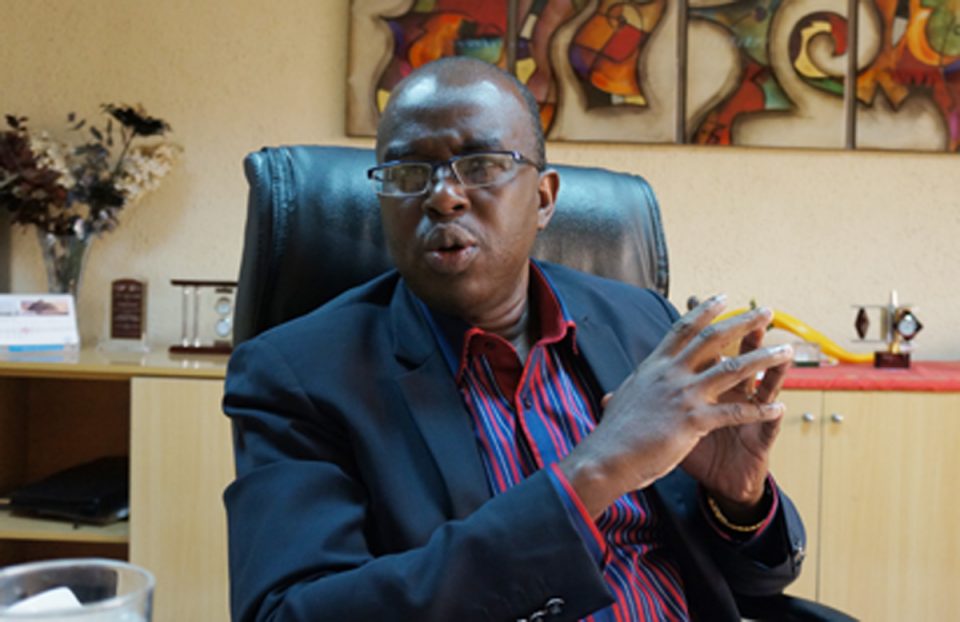There was palpable fear among members of the organised private sector yesterday over a spike in the price of Automotive Gas Oil, also known as diesel, which hit an all-time high of N290 per litre this week as against N280 per litre last week.
Consequently, the Nigeria Employers’ Consultative Association (NECA), the Nigeria Economic Summit Group (NESG), the Nigerian Association of Chamber of Commerce, Industry, Mines and Agriculture (NACCIMA), and the National Association of Small and Medium Enterprises (NASMEs) raised the alarm that the new price regime might trigger a corresponding increase in prices of goods and services, as most companies in Nigeria rely on diesel to power their factories.
The OPS feared that the price increase, believed to have been precipitated by the rise in the price of crude oil, with Brent crude selling for $75.31 per barrel at the international market yesterday, would compel its members to transfer the burden of the new price to Nigerian consumers.
The Director-General of the NECA, Mr. Timothy Olawale, told THISDAY that the association believed that only the “provision of energy at a reliable and affordable price to industries will reduce the demand for diesel, while improving the infrastructural provision of rail for easy movement of goods and persons at a cheaper price will reduce the burden on businesses and further reduce the inflationary rate.
Olawale said: “Ordinarily, the burden will be shifted down to the consumers, whose purchasing power has been eroded with the rising inflationary trend, while more and more people would enter into the poverty margin.”
Olawale said with the total deregulation of prices of diesel, “it behooves that as prices of crude oil increases or decreases globally, there should be a consequential change in its prices nationally. “Currently, the price of Brent crude is $75.57, therefore the price should necessarily increase and can even be exasperated as the current crisis between Saudi Arabia and the United Arab Emirates escalates the global price.”
He added that the impact of the surge in diesel price would be grave on manufacturers and other economic actors in the banking, telecommunication, and transportation sectors “as the country is one of the world’s largest economies where businesses rely so heavily on diesel-powered generators.
Olawale said: “This will further increase the rising inflationary rate, as prices of transportation and foreign exchange fluctuation will further negatively impact the slow economic growth.”
Speaking in the same vein, the Chief Executive Officer of the NESG, Mr. Laoye Jaiyeola, said that Nigerian businesses should expect prices in a deregulated market to change according to variations in crude oil prices.
Jaiyeola said: “It will have an impact on the cost of manufacturing and inflation rate. Unless we produce locally, when the price of crude oil goes up, all the derivatives around it will go up also. But it will still go up even if we produce locally.
“What manufacturers are concerned about is how to have a more efficient power supply since they are on diesel because the quality of power supply is not good enough. So, how these people can move to an efficient electricity supply should be the question. Maybe, it will be cheaper if there is recourse to gas and other alternative energy sources with lesser pollution.”
For the Director-General of the NACCIMA, Ambassador Ayo Olukanni, this increase in the price of diesel would naturally result in an increase in the cost of production, which would impact on prices of goods and services.
He said: “It will not be good for planning and will disrupt earlier estimate for production. This is why it is necessary for more stable and predictable arrangements on adjustments of the cost of oil and gas products whenever it becomes absolutely necessary to do so.”
Also, the immediate past Director-General of the LCCI, Dr. Muda Yusuf, noted that the high diesel cost would take a huge toll on operating and production costs across the economic sectors.
Yusuf viewed the current price of diesel as double jeopardy for businesses in the country, especially now that consumers’ purchasing power is weak.
He said: “Diesel cost also has profound implications for transportation and logistics costs. Most of the trucks that move freight across the country are powered by diesel. The consequences are that sales are dropping, inflationary pressures will intensify, profit margins are being eroded and industrial capacity utilisation will drop. Elevated pressure on general price level exacerbates the poverty situation in the economy.”
The staggering situation businesses are exposed to due to the escalating cost of diesel, constrained the Chairman of Lagos State Chapter of the National Micro, Small and Medium Enterprises (MSMEs), Dr. Adams Adebayo, to urge the federal government to provide subsidies for Nigerian manufacturers by buying their products and retailing same to consumers at a controlled price to avoid inflation.
Adebayo said: “Diesel is the only thing we run our machines on because of poor supply of electricity. And we have not been selling in the last six months. All our vendors are complaining about low sales due to the high price of goods. So, it is either we close shop or we increase the prices of our products.
“Government should stand as an intermediary that will buy our products rather than subsidising petrol dealers. The DISCOs have just increased their tariffs. Diesel price has gone up, as well as interest rates. So, the government should subsidise us by purchasing our products from us and selling them to the public at a controlled price. It should help us and not allow our businesses to die.”
In February, when the global oil benchmark, Brent crude, averaged $62.28 per barrel, the price of diesel, which is not regulated by the government, ranged from N220 to N250 per litre in Lagos.
Brent crude, which has been trading above $70 per barrel since the start of June, increased to $75 per barrel yesterday.




